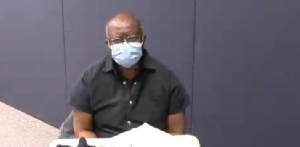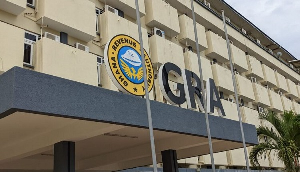Its no secret that decentralisation and local government have not made the sort of impact it should have made on the lives of the millions of our rural dwellers. We know a lot of the officials at the local and district level have not achieved due to lack of resources, however we have failed to recognise that another significant reason for the truly awful performance at this level of government has remained the same old barriers such as lack of credible leadership, lack of key management skills and the slave master mentality of some of the chiefs and local officials who do not see their roles as servants but tin pot dictators who can get away with ?murder? because no one can touch them in their neck of the woods. It worries me that the lack of credible monitoring, supervision and oversight functions by the Ministry of Local Government and Rural Development has allowed a significant number of them to escape from the basic responsibilities of accountability, effective and transparent decision making processes and allowed the institutions to progressively retrogress and impacting negatively on the lives of citizens.
Old habits die hard, but as the Vice President has just pointed out, at the recent workshop for District Chief Executives and other local government officials in Accra, comparing their expected levels of performance of governance , in terms of dealing with sanitation, choked gutters and drains in our towns and cities, creating opportunities and economic development, with their actual performance leaves much to be desired.
In the light of these I sighed with relief when I read that the new Minister of Local Government, has indicated his determination to drag the management and operations of district assemblies into the modern era in order to accelerate delivery at the local level. I believe this and his views regarding establishing some sort of training programmes for our ?honourable? traditional chiefs and rulers, for a yet to be established ?Royal College? to help them plug effectively into the national development goals agenda is very commendable. For me any initiative to enhance leadership skills of the sector and to enable our ?venerable chiefs? to start performing, and not only interested in taking additional wives when they ascend to their thrones, shows the beginning of a clear commitment to effectively transform leadership and , organisational capabilities in our local/traditional economies. My advice to the Chiefs and to the District Chief Executives and their staff, facing drastic changes to their work ethics would be to take the leap and embrace the change for the sake of the welfare of millions of our poverty stricken rural dwellers for whom, well, have had the economic and social conditions of ?Hell on Earth? imposed on them through the negligence and appalling behaviour of local officials .
I hope the Minister also recognises the mistakes of the past and is determined that they won?t be repeated. That is why it is important that apart from the training on the legal framework within which they must operate and other operational issues, any new systems set up to monitor and hold chiefs and local officials to account for their actions, must filter through to the regional and district levels. For the chiefs and the DCE?s to cultivate effective leadership and improve their organisational capabilities to deal with issues of performance, they must not be distracted by trivial pursuits. The ministry must remember to put in place a programme to make sure that they acquire strategic leadership skills, learn how to delegate responsibility so they don?t engage in mediocrity and find themselves meddling in every little local dispute however insignificant within their local areas. Strategic leadership skills would help them understand what their role should be and how they can supervise and monitor those they delegate responsibility to in their day to day operations within their districts, so they can concentrate on strategic thinking and policy formulation to enhance the lives of their local people.
Strategic leadership skills would for example help both chiefs and DCE?s understand that part of what they are tasked with achieving is not to award contracts to themselves but accelerating economic development and nurturing businesses and enterprise start ups, creating opportunities, be it in farming, tourism or food processing, anything to create employment and transform the lives of their poverty stricken communities. Strategic leadership skills would help them understand that, helping their local people to develop local markets and help them identify local resources, goods and services which can be developed and can be sold to other parts of the country or exported to other countries to generate income is pivotal in alleviating poverty.
In the fast changing world of attracting investment funds for job creation and economic development in our rural areas, why shouldn?t a ?savvy? strategically minded, traditional Chief or DCE not be able to think of for example acquiring land in the name of their authority or traditional council and leasing them out to invited citizens both at home and from the Diaspora to set up industrial parks and factories with appropriate technologies to process and exploit their local resources in the various districts for economic development. It is no secret that central government money is finite, and that, there exists a huge pool of money for investment especially from their fellow Ghanaian citizens in the Diaspora, some of who may hail from their local areas. Probably the only problem which is preventing these monies from being attracted and invested in productive ventures and activities back home in our rural economies, is the difficulties associated with land acquisition, lack of necessary guarantees ,and the lack of the requisite effective land administration and registration systems in these areas. I believe DCE?s and traditional chiefs can sit down with their various traditional authorities to brain storm and come up with solutions to overcome these difficulties and guarantee that investors profits will be safe, I think everybody would be a winner. After all anecdotal evidence from Ghanaian economic history shows that wherever there is a demand for a good or service or a business which can be traded or operated profitably citizens always rise up to the challenge to meet the challenge.
With a finely tuned system of training, supervision and monitoring of our DCE?s and traditional rulers, to ensure continuous improvement in delivery, the long awaited economic take off in our rural and traditional economic settings would no longer become a pipe dream. More grease to your elbow, Minister, because for the first time you are not only preaching to our traditional chiefs and local government officials to do the necessary, but putting into place the scrutiny systems and ensuring that they acquire the necessary knowledge and skills to deliver to our long suffering masses. Please do not forget to ensure in the light of recent allegations of malfeasance against former DCE?s, that we put in place a system which would ensure they prepare and file records of any KEY decisions, be it financial or economic, so we can hold them to account in the future especially if the decision is made arbitrarily and adversely impacts on local citizens. We must put a stop to DCE?s making non- sustainable decisions like for a example spending over 350 million Cedis on an old decrepit road sweeping vehicle which breaks down in a couple of months, rather than using that money to recruit and train unemployed youths to clean the local streets in a sustainable manner and put money into the local economy.















